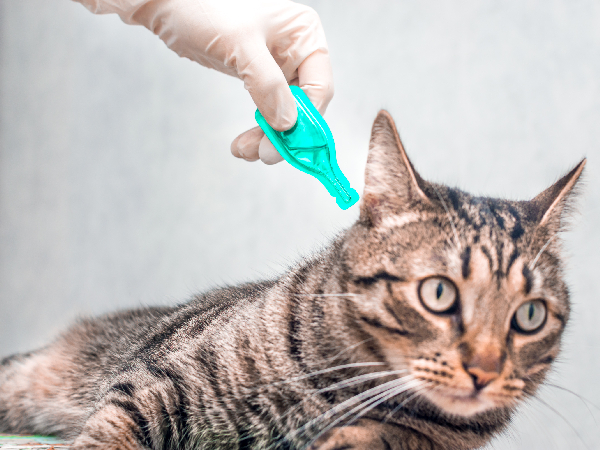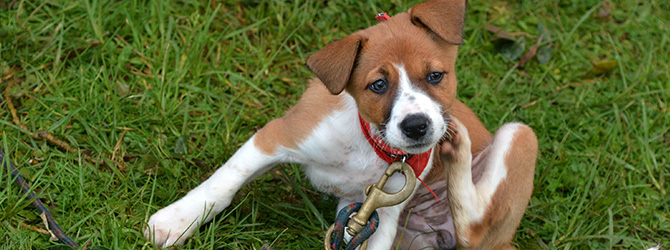Vet's eco-friendly guide to pet parasite treatments
Keeping our pets safe means protecting them from fleas, ticks, worms and other parasites. These pests can cause nasty diseases that can be spread to other animals and even humans.
Using treatments to prevent and treat parasites is essential to responsible pet ownership. But there are risks involved, not just to you and your pet but also to wildlife and the environment.
Here are some helpful tips from our senior vet, Edward Davies, for using parasite treatments in a safe and eco-friendly way.
1. Understand the lay of the land
It’s worth knowing that before your pet's parasite treatment gets the green light for use, it must pass various safety tests and an environmental risk assessment. Authorities, like those in Europe and the US, maintain a keen eye on these products. Having said that, more research is needed to fully understand the environmental impact of pet parasite treatments and to develop more sustainable alternatives.
2. Pick the right product for your pet
Every pet is unique, and so are their needs when it comes to parasite treatments. We recommend using products that are prescribed by a vet, such as those given to Pet Health Club members, as they’re clinically proven and will be carefully tailored for your pet.

3. Take cues from your vet
Always listen to your vet on how often and how long to use a treatment. You should avoid giving your pet anti-parasitic veterinary medicines when they’re not needed as overdosing can be harmful to both your pet and the planet.
4. Follow the instructions carefully
All pet medicines have what’s called a datasheet, which is like a manufacturer’s guidebook. It explains what the medicine does, how to use it, how not to use it, how to store it, and what side effects might happen. It's really important to follow this guide to make sure the medicine works well and is safe for your pet and the environment.
5. Give water a break after applying spot-on treatments
Ever thought about how spot-on treatments can potentially be affected by washing your pet or allowing them to swim? These products can end up in rivers, reservoirs or the sea. To prevent this, follow the instructions from your vet and those that are supplied with the product.
6. Ditch waste the right way
Empty treatment containers are more than just rubbish — they're potential hazards if disposed of incorrectly as they can still contain small amounts of the product in them. Following local regulations can prevent them from becoming an environmental problem. It’s also important to dispose of your dog’s poo responsibly. Some councils have special bins and may use the dog waste for things like generating biogas. Others will incinerate it or send it to landfill with other household waste but, as these processes are strictly controlled, that’s still more environmentally friendly than simply leaving it lying around.
7. Stay safe when treating your pet
After applying a spot-on parasite treatment, don't touch or cuddle your pet until it's dry, as it can cause problems for you or other pets. Only use the products made for your pet — so, for example, don't ever use dog products on cats. When putting on the treatment, avoid your pet's eyes, ears, and mouth, and make sure other pets don't lick it off.
8. Be careful when grooming
There’s some anecdotal evidence suggesting that grooming your pet following a spot-on treatment and then discarding the fur could potentially harm nesting birds. Many spot-on treatments contain insecticides that are safe and effective for pets but can be toxic to other wildlife, including birds, fish and honeybees.
By choosing and using parasite treatments responsibly, we can ensure our pets stay healthy while we help protect the planet.
Members of Pet Health Club receive effective flea, worm and tick treatment prescribed by our vets, so you won't find these products in your local pet shop or any other parasite treatment subscriptions. These treatments are chosen to prioritise your pet's wellness and environmental sustainability.
9. Wash bedding regularly
It's really important to keep your pet's bedding clean. Fleas like to lay their eggs in places like dog or cat beds so if you wash these regularly, you can help stop fleas from becoming a problem.

Expert advice on parasite treatment
For expert advice on parasite treatment for you pet, contact your local vet. Find your nearest vet using our Find a Vet page, or speak to a vet online using Online Vets.



